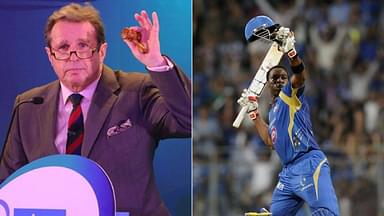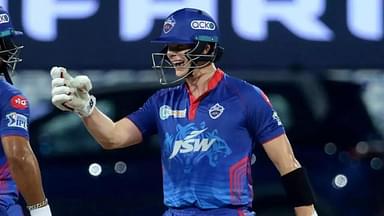IPL 2022 prize money: The IPL is miles ahead of every other franchise T20 league in the world in terms of revenue generation and prize money.
Advertisement
The 15th season of the Indian Premier League (IPL) is upon us, as the ten franchises have began welcoming their respective players to kick-start with their preparations to have yet another go at the coveted title.
Waking up to this cutie checking-in. ☺️
Welcome 🏡, @devdpd07. 💗#RoyalsFamily | #TATAIPL2022 pic.twitter.com/S1id0Ixr34
— Rajasthan Royals (@rajasthanroyals) March 15, 2022
With numbers to back it up, the marquee league is by quite some distance unarguably the biggest in terms of competitiveness, the overall revenue generation, players salary, and the overall prize money than any other franchise T20 tournament in the world.
With the ever increasing value of broadcasting and sponsorship rights with each successive deal agreement, the IPL has grown leaps and bounds with staggering contrast details when comparing its present numbers with the league’s inaugural season.
IPL 2022 prize money
During the cash-rich league’s 14 years of journey, the prize money awarded has witnessed a 4% jump in terms of the overall prize money pool awarded to the franchises.
While the 2008 season winners (Rajasthan Royals) were rewarded with a prize money of INR 4.8 Crore, the 2021 IPL champions Chennai Super Kings (CSK) earned a sum total of INR 20 Crore.
While last year’s runner-ups Kolkata Knight Riders (KKR) were handed out INR 12.25 Crore, the 3rd and 4th placed teams-Delhi Capitals (DC) and Royal Challengers Bangalore (RCB) respectively were awarded INR 8.75 Crore each, making the overall pool reach the INR 50 Crore mark.
As far as the imminent 15th season of the league is concerned, EspnCricinfo, on Tuesday, confirmed that the prize money to be dished out to the franchises would be “based on the final standings and any increments would be adjusted and calculated based on ten teams rather than eight”.
To brush it up, the league matches would comprise of a total of 74 matches (as against 60 last year), with each of the ten teams-divided in two virtual groups, to play 14 league games each before the playoffs.




![Most Expensive Player In IPL 2024 Auction [FULL LIST]](https://cdn-wp.thesportsrush.com/2023/12/ae43af1b-pat-cummins-world-cup.jpg?format=auto&w=384&q=75)


